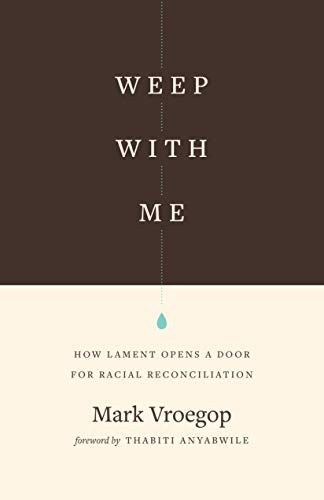What do you think?
Rate this book


226 pages, Kindle Edition
Published June 19, 2020
Prayers in pain lead to trust—together.
Christianity looks stunning to the world and most emulates Jesus when our identity and unity in the gospel are more foundational than any other identity—including our ethnicity.
When Christians from majority and minority cultures learn to grieve together, they reaffirm their common bond as brothers and sisters in Christ. Lament enters into the deep emotions of sorrow, hurt, misunderstanding, and injustice.
Lament starts with a humble posture. It communicates: “I’m here. I’m sad too. Let’s talk to Jesus, because we need his help.”
Simply stated, a lament is a prayer in pain that leads to trust. Laments are more than merely the expression of sorrow. The goal of a lament is to recommit oneself to hoping in God, believing his promises, and a godly response to pain, suffering, and injustice. Lament is the historic biblical prayer language of Christians in pain. It’s the voice of God’s people while living in a broken world. Laments acknowledge the reality of pain while trusting in God’s promises.
Godly lamenters keep asking even when the answer is delayed.
Laments help us through suffering by directing our hearts to make the choice—often daily—to trust in God’s purposes hidden behind the pain. In this way, a lament is one of the most theologically informed practices of the Christian life. Laments lead us through our sorrows so that we can trust God and praise him.
Lament creates a language to “weep with those who weep.” It helps us express sorrow with one another. Lament gives us a voice of empathy. It communicates that while we may not understand, we are willing to walk alongside a brother or sister in pain.
The Bible calls us to weep with those who weep; it doesn’t tell us to judge whether they should be weeping. H. B. Charles Jr.
We empathize not because we fully understand but because we have been freely loved by Christ. Entering the pain of another and lamenting with others demonstrates the heart of Christianity.
Lament candidly identifies the brokenness around us and in us. It acknowledges the gap between God’s design for the world and our experience. Lament is the way the Bible talks about life in a sinful world.
Even while the facts are unclear and emotions run high, lamenting the presence of racial tension is better than silence. We can acknowledge the hurt our minority brothers and sisters feel. Lament refuses to allow silence to rule our lives.